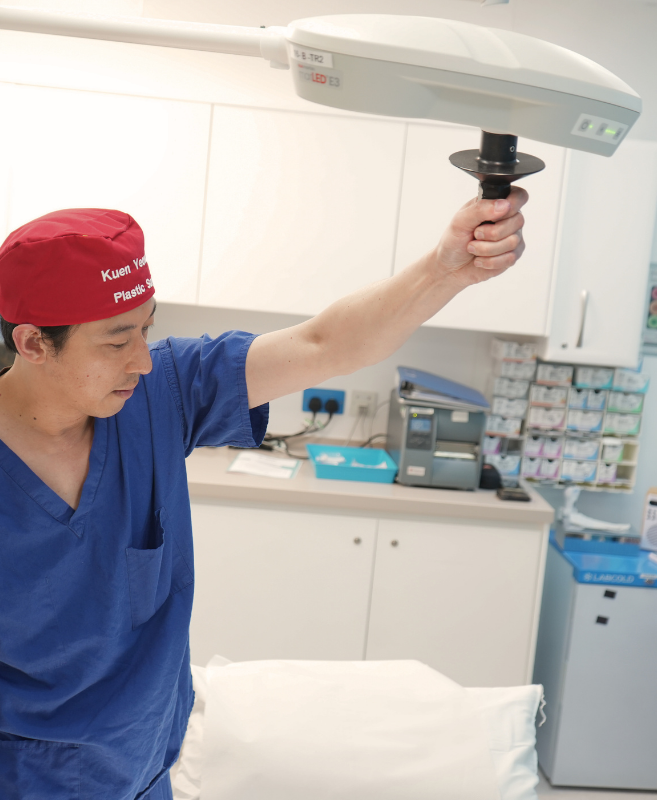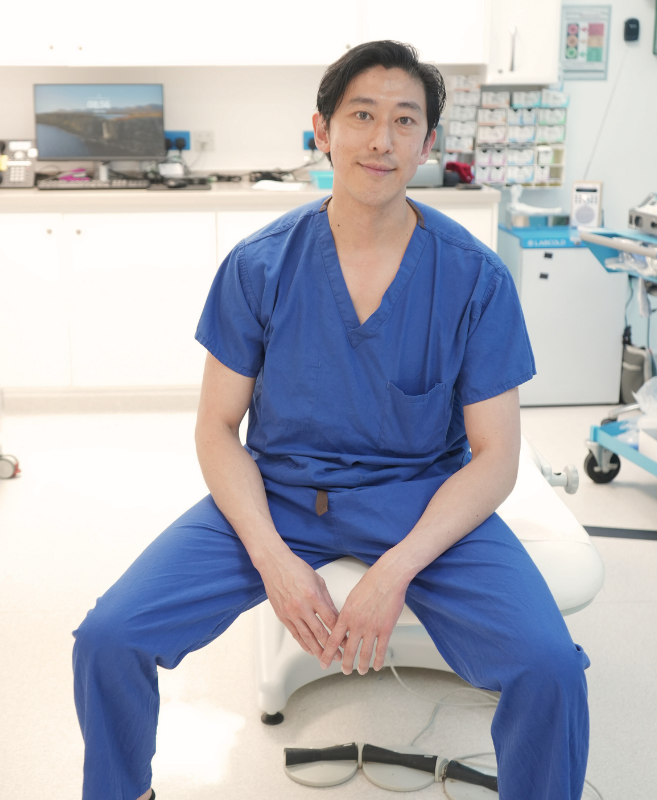Sentinel Lymph Node Biopsy (SLNB) for Skin Cancer
A precise diagnostic and surgical procedure used to detect early spread of skin cancer through the lymphatic system, supporting accurate melanoma staging and treatment planning.
What is a Sentinel Lymph Node Biopsy?
Commonly referred to as: SLNB, lymph node mapping, melanoma staging biopsy, sentinel node surgery, first lymph node biopsy.
A sentinel lymph node biopsy (SLNB) is a focused surgical procedure designed to detect if skin cancer — most often melanoma — has started to spread. Rather than removing all nearby nodes, it targets the sentinel node, which is the first lymph node (or group of nodes) that drain lymphatic fluid from the tumour site. If cancer cells leave the original site, this node is usually where they appear first.
At Apex Skin Clinic, SLNB is performed by consultant plastic surgeons with expertise in melanoma and skin cancer surgery. It plays a critical role in determining if cancer has moved into the lymphatic system, which helps tailor the most appropriate treatment plan. The procedure is commonly carried out following your initial wide local excision of melanoma.
While SLNB is well-known in breast cancer management, it is particularly important in melanoma staging due to the cancer’s unique pattern of microscopic spread. It allows early detection before any lymph nodes become enlarged or tender, when outward signs may not yet be present.
What Are The Benefits Of Sentinel Lymph Node Biopsy?
SLNB provides vital insight into cancer behaviour. This highly targeted biopsy enables more accurate melanoma staging and supports decisions around treatment intensity. It helps avoid under-treatment of early spread, and also unnecessary intervention when lymph nodes are normal. The procedure also reduces patient anxiety by clarifying results with minimal disruption.
Because the immune system plays a key role in managing melanoma and treatment response, SLNB also guides decisions on whether to refer to oncology to initiate systemic therapies or oncology trials.
-
You will attend a pre-operative assessment to review your general health and medical history. Fasting may be required. Your consultant will explain the goals of the procedure, address any risks or side effects, and confirm plans for recovery and follow-up. You’ll be asked to arrange transport home.
-
In theatre, the combination of radioactive tracer and blue dye guides the surgeon to the sentinel node. A small incision is made to remove the node. Depending on the primary cancer site and drainage pattern, this node may be in the armpit, groin, neck or jawline.
-
You will be discharged the same day with a small dressing over the incision. Mild bruising, swelling, or fluid accumulation (seroma) is common but temporary. The wound usually heals quickly and without complication. The risk of infection or allergic reaction to the dye is very low.
Your histology report will be available in 7–14 days. If no cancer is found in the node, further treatment may not be necessary. If melanoma has spread, your consultant will explain next steps, which may include immunotherapy, further imaging, or additional surgery.
Who Should Consider a Sentinel Lymph Node Biopsy?
Your consultant may recommend SLNB after a diagnosis of invasive melanoma and discussion at the skin cancer multidisciplinary meeting. It is most often advised if the tumour is thicker than 0.8mm or shows ulceration, high mitotic activity, or other high-risk features. In these cases, cancer cells may have already begun travelling through the lymphatic system — even if no swollen lymph nodes is noticeable.
This diagnostic procedure also supports more accurate staging in cases where melanoma has spread into deeper skin layers, therefore deemed higher risk melanomas. SLNB is not usually required for very thin melanomas.
How Excision Surgery Works, The Types of Biopsy & Technique
This procedure involves both nuclear medicine and surgical precision. On the day of surgery — or occasionally the day before — a radioactive tracer is injected near the melanoma excision scar. This tracer flows through the lymphatic system to highlight the draining lymph nodes. A gamma camera tracks the tracer to locate the sentinel node.
During the operation, a blue dye is also injected to help identify the sentinel node. Using both tracer and dye, the surgeon identifies and removes the correct node. The sample is sent to histopathology for microscopic evaluation, checking for any cancer cells that may have migrated from the tumour.
SLNB is a day-case procedure performed under general anaesthetic. Most operations last 60–90 minutes, and patients typically go home the same day.
Frequently Asked Questions
-
The operation is done under general anaesthetic. Mild side effects like bruising or tenderness may occur afterwards.
-
Lymph nodes may swell slightly after surgery, or if cancer is present. However, the biopsy helps distinguish between cancer-related swelling and benign causes.
-
If the sentinel node biopsy is positive, your consultant may recommend further staging scans, and may refer you for treatment such as immunotherapy or surgical clearance, depending on your risk profile.
-
It shows whether skin cancer has spread to nearby lymph nodes — even before signs of cancer spread is clinically detectable. It is a critical staging tool in melanoma management.
-
Most SLNB procedures last 60 to 90 minutes. Patients are usually discharged the same day.
Find Sentinel Lymph Node Biopsy Near You
Apex Skin Clinic offers a consultant-led sentinel lymph node biopsy for skin cancer at our private dermatology clinic in Berkshire Grove Hospital, Maidenhead.
We welcome patients from Windsor, Eton, Marlow, Slough, Ascot, and throughout Berkshire, London and Surrey, seeking expert care and effective surgical skin cancer treatments.
Skin Lymph Node Biopsy in Maidenhead, London, Eton and Beyond
Apex Skin Clinic provides consultant-led sentinel node biopsy for skin cancer at several hospitals including Heatherwood Parkside, Wexham Parkside and HCA Harley Street.
We support patients from Windsor, Eton, Marlow, Slough, Ascot and across Berkshire, London and Surrey, offering expert surgical care with clarity and compassion.




